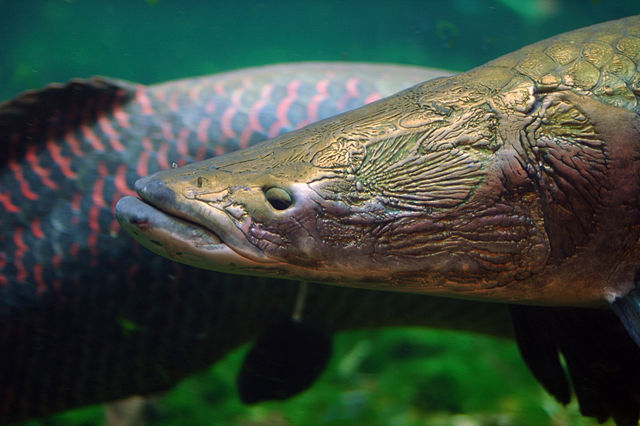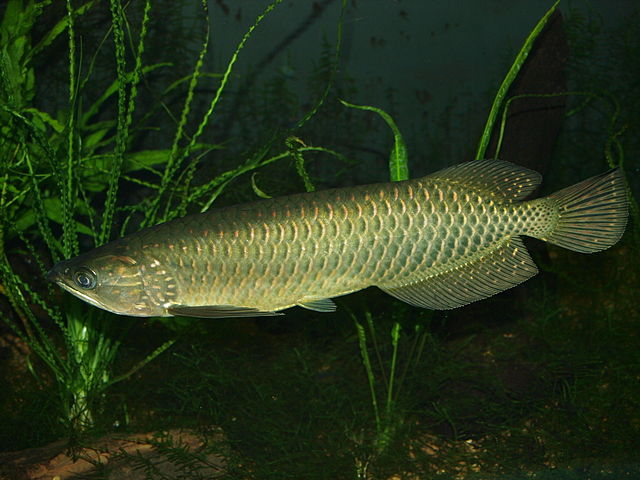The arapaima, pirarucu, or paiche is any large species of bonytongue in the genus Arapaima native to the Amazon and Essequibo basins of South America. Arapaima is the type genus of the subfamily Arapaiminae within the family Osteoglossidae. They are among the world's largest freshwater fish, reaching as much as 3 m (9.8 ft) in length. They are an important food fish. They have declined in the native range due to overfishing and habitat loss. In contrast, arapaima have been introduced to several tropical regions outside the native range, where they are sometimes considered invasive species. In Kerala, India, arapaima escaped from aquaculture ponds after floods in 2018. Its Portuguese name, pirarucu, derives from the Tupi language words pira and urucum, meaning "red fish".
Arapaima
Arapaima leptosoma shown at its full length
Closeup of scales
Arapaima or pirarucu close-up
Osteoglossidae is a family of large freshwater fish, which includes the arowanas and arapaima. They are commonly known as bonytongues. The family contains two extant subfamilies Arapaiminae and Osteoglossinae, with a total of five living genera. The extinct Phareodontinae are known from the Late Cretaceous and Paleogene.
Osteoglossidae





